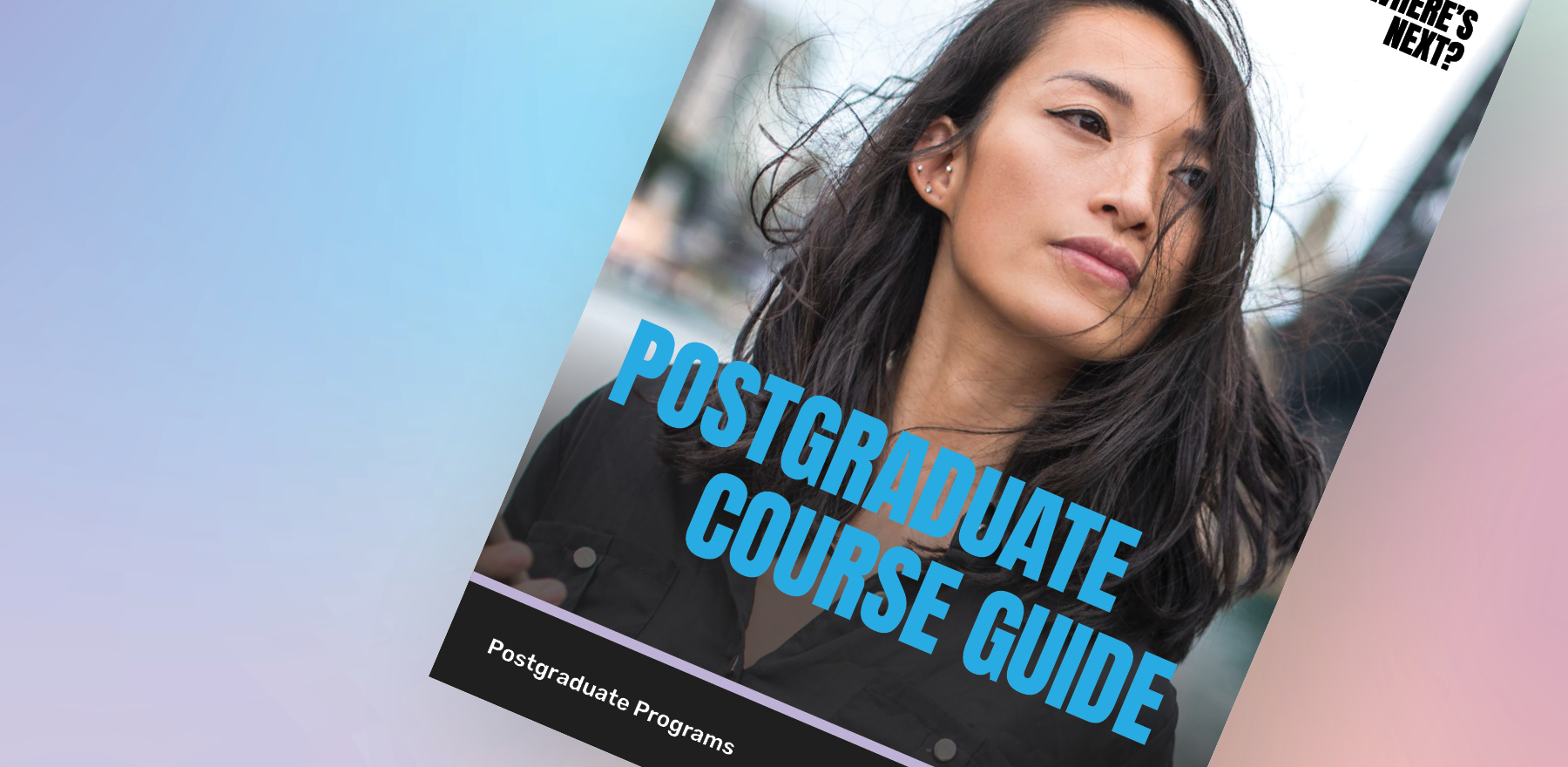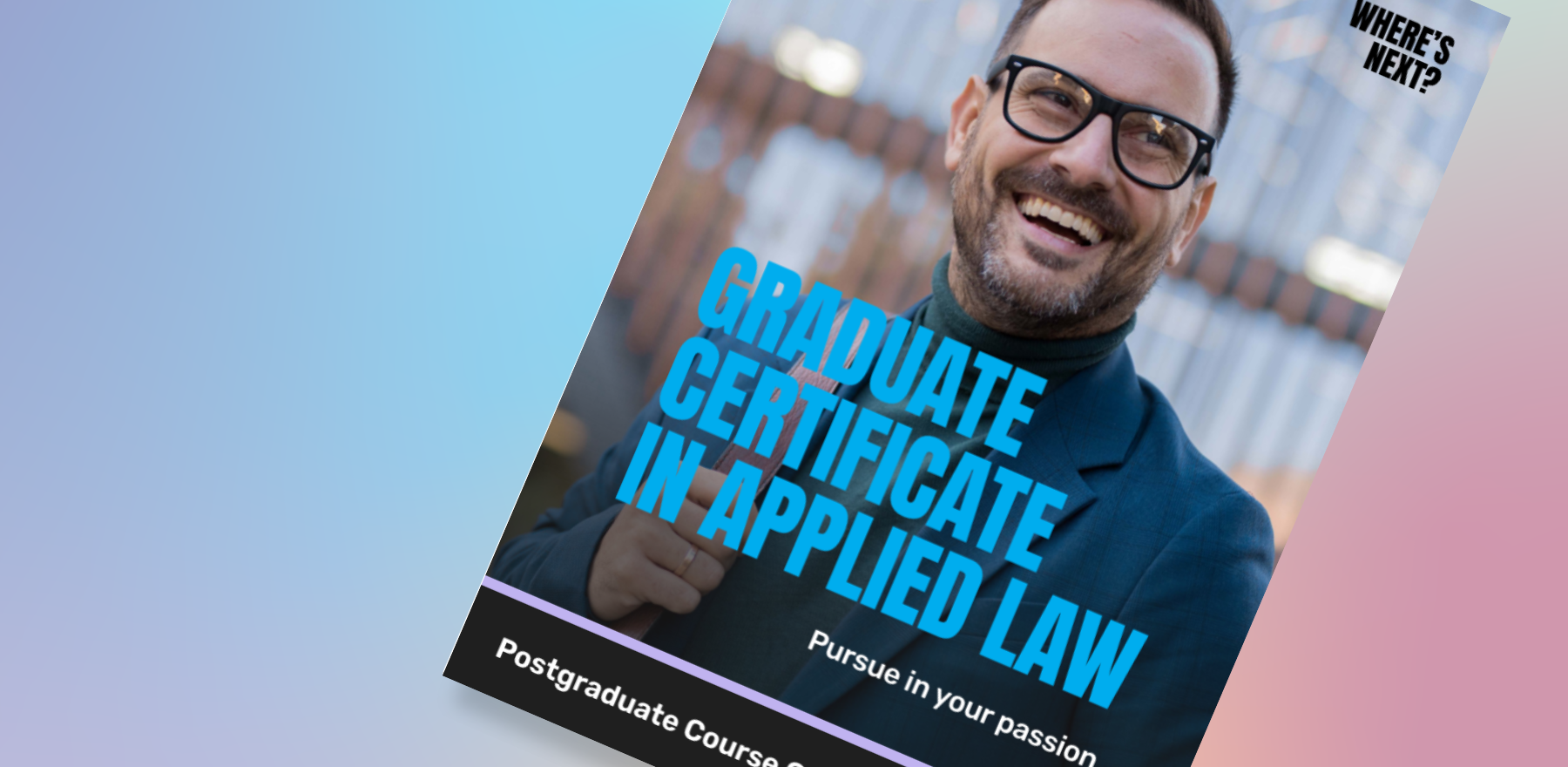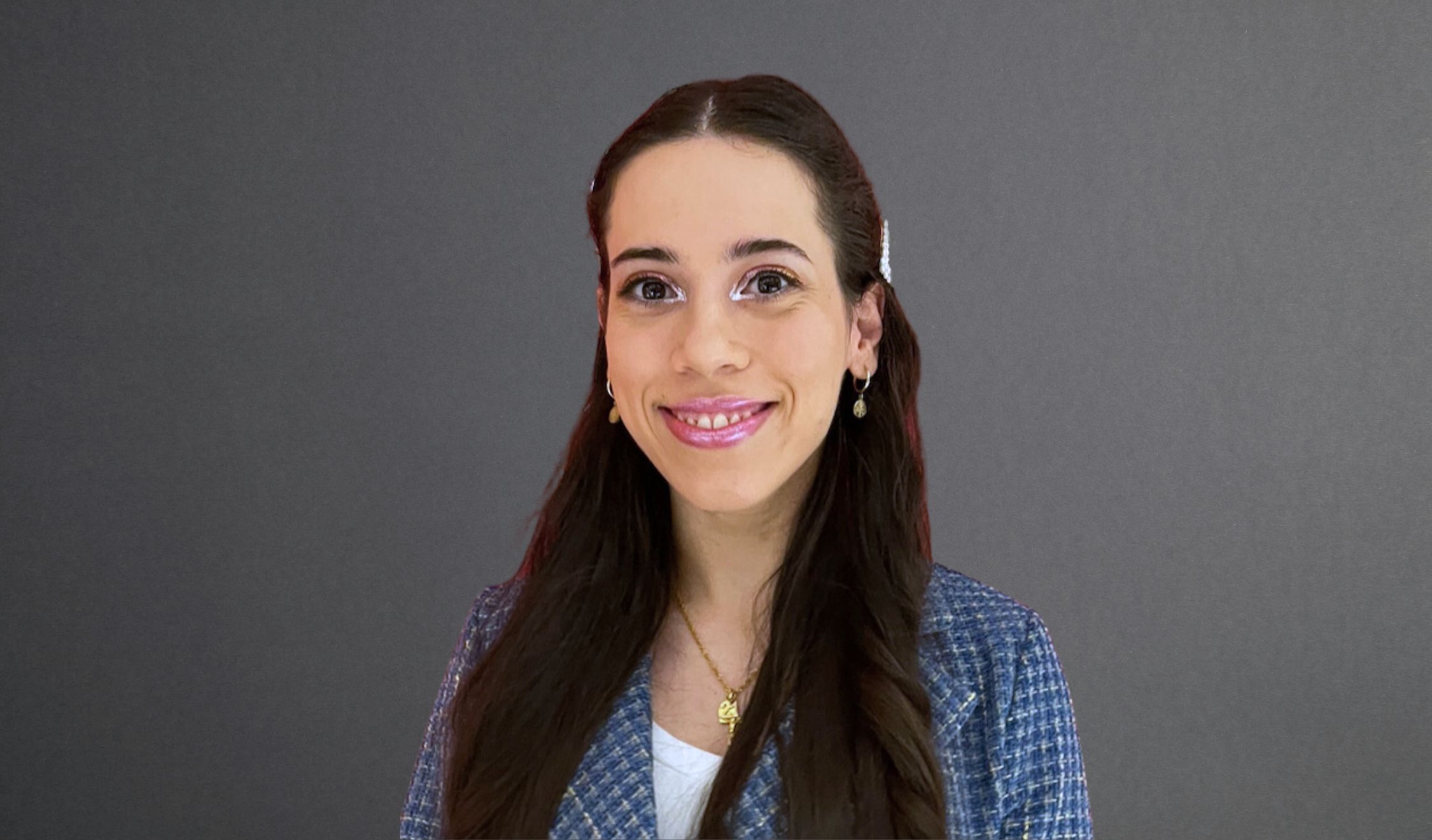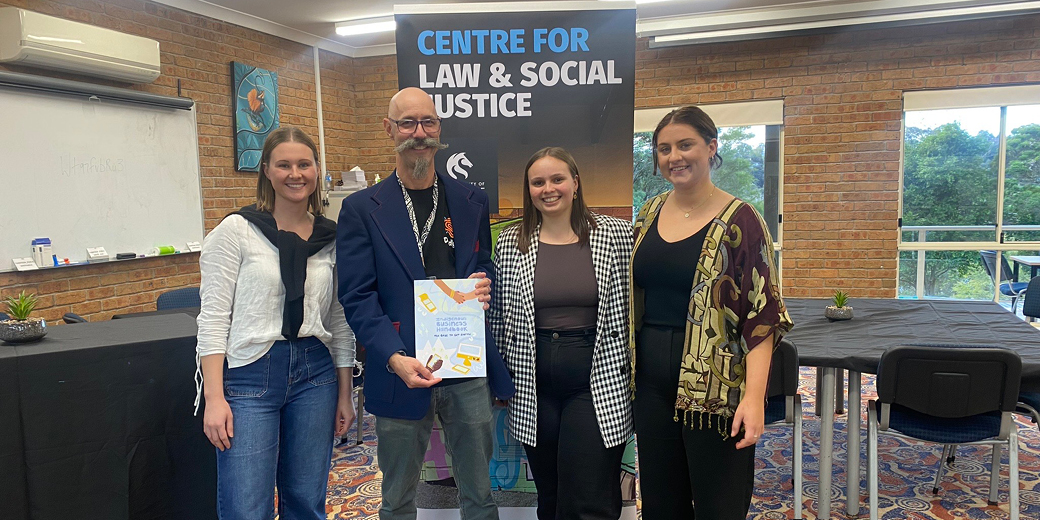With over 875 million users worldwide, LinkedIn has become an indispensable platform for professionals. Unlike Instagram and Facebook, it’s a place dedicated to putting your best professional foot forward to further your career and build your business. For lawyers, it's swiftly becoming an essential tool to network, grow a strong professional profile - and generate business. But how do you set yourself apart without having to become a full-time content creator?
In this article, we catch up with College of Law National Career Strategists Susan Pincus and Ruth Beran to better understand the benefits of LinkedIn for lawyers. We then explore a few practical tips to help you use LinkedIn to optimise your profile, showcase key achievements, position yourself as an expert, and network to generate leads and career opportunities.
But before we get started, a quick checklist - have you done the basics?
- About: add in a quick overview of your career and achievements to date so other professionals can understand your offering.
- Work experience timeline: ensure your work experience is up to date, consider adding a couple of lines outlining your current and previous responsibilities.
- Education: add your tertiary education and any other specialist qualifications, find the official organisation so the logo appears in your history.
- Skills: make sure to complete the skills section and consider endorsing trusted connections' skills, they are likely to do the same in kind.
How can LinkedIn help your legal career?
“LinkedIn is a great tool for lawyers to have visibility, engage with the profession, and be seen by peers, potential clients, and even future employers,” Susan Pincus says. “Building a profile on LinkedIn is like a professional landing page where you can highlight your career achievements and create your brand.
“LinkedIn is also important in that it encourages a community of collaboration where you and others can share useful articles, content, and knowledge with the profession,” Ruth Beran adds. “Coming from this perspective of sharing is important as opposed to seeing it as a platform merely to promote yourself.”
According to Ruth, research has shown that people are more likely to be referred for jobs by their second- and third-degree connections on LinkedIn, so building a professional network is important.
“Some opportunities are only advertised on LinkedIn with some hiring managers only posting about an opportunity on their LinkedIn. Regularly checking the platform means that lawyers can see relevant hiring updates posted by their connections,” Ruth says.
“LinkedIn will definitely help for future roles or promotions if you have a large enough network, with good quality connection, and you are active on the platform,” Susan says. “This may mean following individuals and organisations of interest, joining groups, liking or sharing other people’s posts, or ideally creating your own.”
Is it ever too early to set up your LinkedIn profile?
According to Ruth and Susan, it’s never too early to get on LinkedIn.
“I would definitely encourage law students to create a LinkedIn profile, the earlier the better, typically when they start their studies at university,” Ruth says. “Whilst their profile doesn't need to be 100% complete and finessed, including key information such as work experience, education, a good banner, and an ‘About’ section is a great start. I have seen some law students with great profiles.”
Susan says the trick is to work out how to tell your career story and highlight relevant skills and experience (including work that is non-legal or voluntary) when you are only just starting your career.
To get started, they recommended two live and on-demand courses available on LinkedIn for students:
Rock Your Profile: https://training.talent.linkedin.com/rock-your-profile
Tap Into the Power of LinkedIn: https://www.linkedin.com/learning/learning-linkedin-for-students-24084227/tap-into-the-power-of-linkedin
Now you know the benefits of LinkedIn, what should you consider as you set up your profile? We’ll explore three practical tips including: Optimise your profile, showcase your achievements, and position yourself as an expert.
1. Optimise Your LinkedIn Profile
Craft a compelling headline: Clearly articulate your practice area and value proposition in your headline. For instance, instead of ‘Lawyer’, try ‘Commercial Litigation | Resolving Complex Disputes | Results-Driven’.
You may also list a mix of your achievements and roles. For example, Nick Abrahams, from Norton Rose Fulbright, has a headline which includes: ‘LinkedIn Top Voice in Tech | Global Leader - Digital - Norton Rose Fulbright | Entrepreneur (LawPath)’.
Our own College of Law career strategists, Susan Pincus and Ruth Beran, highlight their value in their headlines. Susan Pincus’s headline, for example, is: ‘Dedicated and Passionate Career Strategist | Job Search & Career Transition Specialist’.
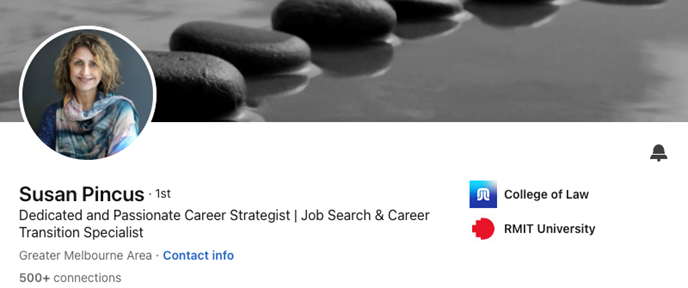
By contrast, Ruth Beran’s headline is: ★ Career Storyteller ★ coaching people to tell their own unique stories to achieve in their careers ★
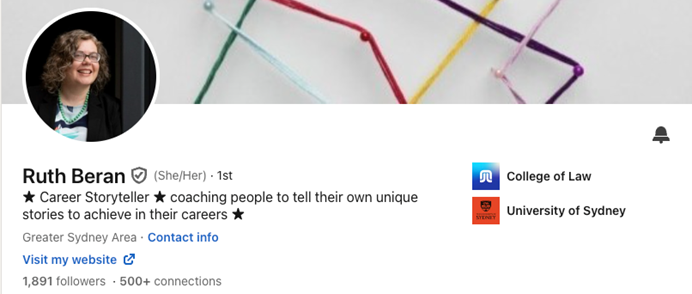
All these headlines are intended to quickly convey what you can expect from each professional. It’s worth giving careful consideration to what headline best captures what you want to convey.
Don’t forget your profile picture: Have you ever seen an empty profile picture? Though increasingly rare, it’s a sure signal that the owner of the profile is never online. It’s a missed opportunity. A high-quality, recent headshot is essential. It should convey professionalism and approachability.
Or your background picture: Many lawyers use this as additional real estate to convey their location. For example, Wollongong-based lawyer Marie Russo uses it to emphasise the fact that she is a local lawyer.
Below are several excellent profiles which illustrate the variety of approaches you can take to optimising your profile, and how impactful each can be.
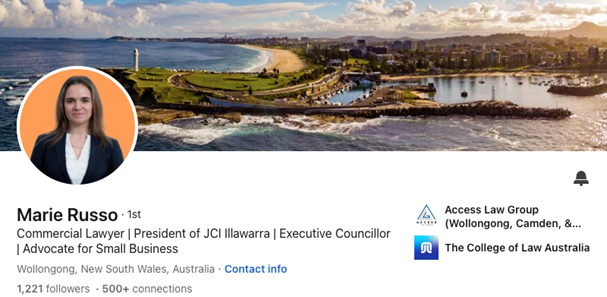
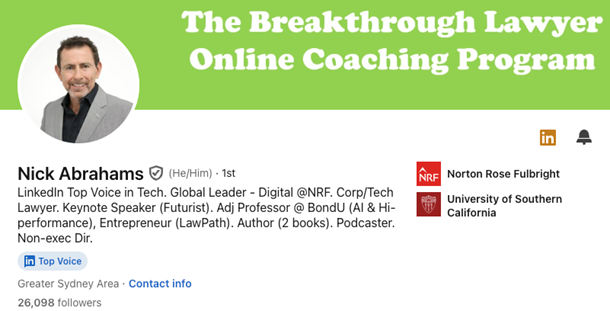
2. Showcase your Achievements
Write a Persuasive Summary: Your ‘About’ section is your digital elevator pitch. Highlight your expertise, unique selling points, and how you can help clients.
Marianne Marchesi does this particularly well. She captures her value from her first line: “I am the Founder and Managing Principal of Legalite – a multi-award-winning commercial law firm committed to delivering Simplified and Strategic Advice.”
It’s a line that clearly distinguishes her to potential clients, and to other lawyers who may refer work.
In her next three paragraphs, she sets forth a clear mission statement, finished with the social proof of key achievements.
Example - Marianne Marchesi
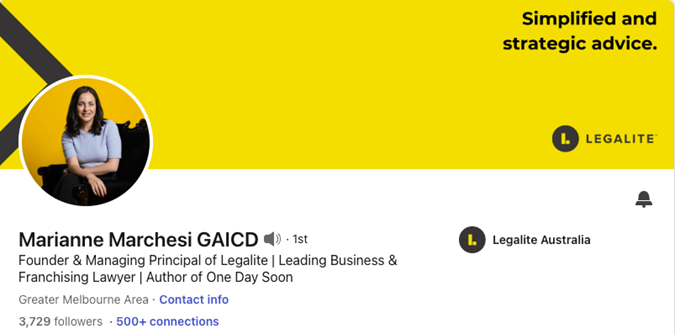
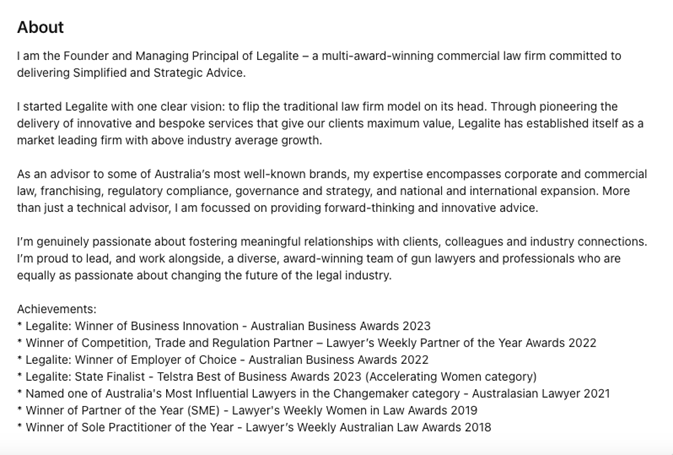
Highlight key projects: Your ‘Experience’ section also provides an opportunity to delve into the details of key projects, clients, and matters. Quantify any achievements, wherever possible. Explain the outcome of your efforts.
List qualifications: Last but not least, include your qualifications and practising certificate.
3. Position Yourself as an Expert
Seek to share articles, quick commentaries, or thought leadership pieces related to your practice area. This positions you as a practice area expert. Conversely, you can share content relevant to your client base, addressing their legal challenges or concerns. Family lawyer Hayder Shkara does this quite well. For example, he shared a short video explaining how domestic violence victims can access $5000 to leave an abusive relationship. You don’t need a studio to film content like this; your phone is high quality enough to deliver the kind of quick content that plays well on LinkedIn and other social media platforms. Content like this positions you as a knowledgeable resource and attracts potential clients.
To drive engagement and ensure you’re seen across LinkedIn, participate in discussions with other lawyers, and respond to comments on your content. This builds relationships both online and in-person and contributes to a community that can help you grow your career and your business.
It can also be worth leveraging LinkedIn’s publishing platform to increase your visibility and reach a wider audience. Like Google, LinkedIn has a search algorithm that you can tap in to rank higher in searches. You can explore more here.
Example - Hayder Shkara, family lawyer
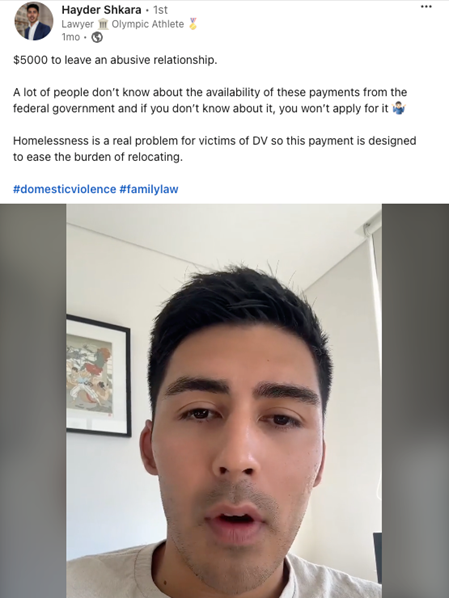














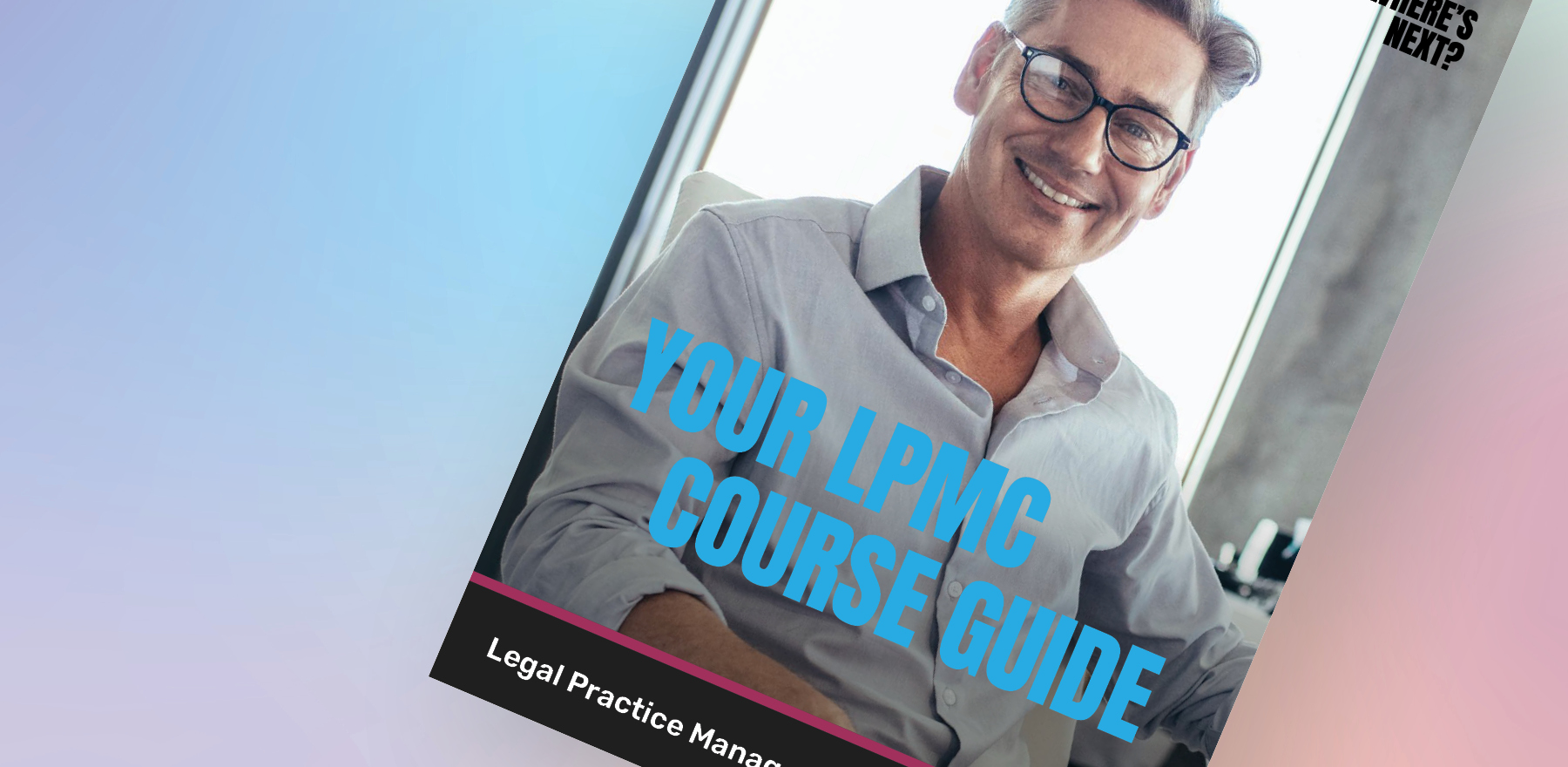
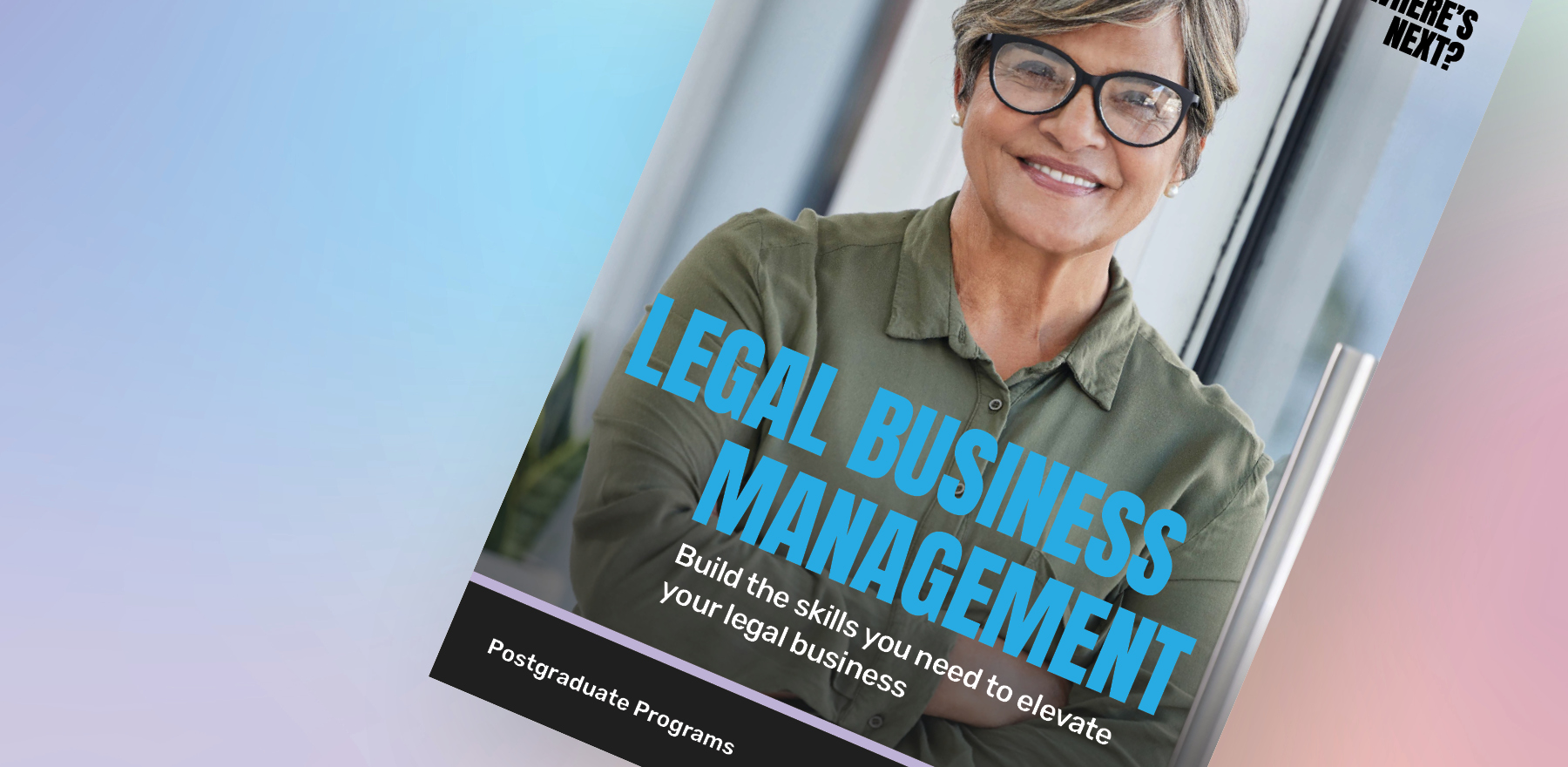


























![How to handle Direct Speech after Gan v Xie [2023] NSWCA 163](https://images4.cmp.optimizely.com/assets/Lawyer+Up+direct+speech+in+drafting+NSW+legislation+OCT232.jpg/Zz1hNDU4YzQyMjQzNzkxMWVmYjFlNGY2ODk3ZWMxNzE0Mw==)






















